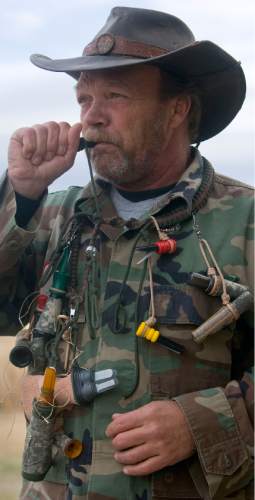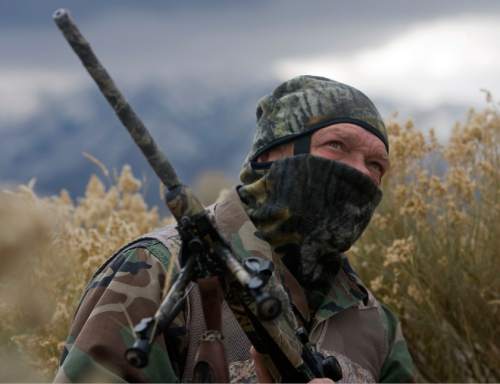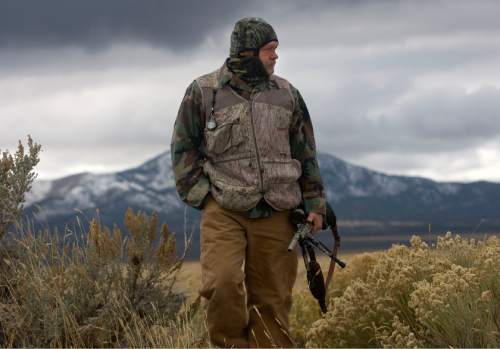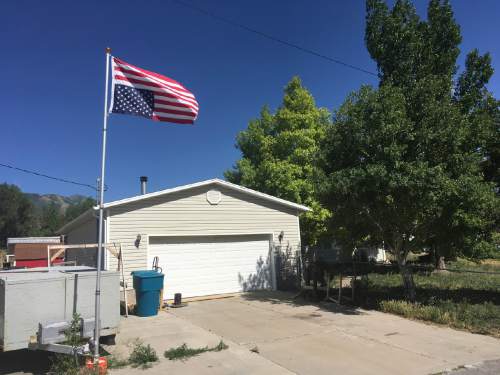This is an archived article that was published on sltrib.com in 2016, and information in the article may be outdated. It is provided only for personal research purposes and may not be reprinted.
A federal judge on Thursday ordered the continued detention of a Tooele County man accused of attempting to bomb a BLM cabin in northern Arizona as part of an "offensive" against the federal government.
FBI agent Steve Daniels said at Wednesday's detention hearing that agents had seen a car on a dirt road near the BLM cabin on the night of June 22, when Stockton resident William Keebler is accused of trying to detonate a pipe bomb that he had ordered built and knew to be placed on the cabin door.
That led Magistrate Judge Dustin B. Pead to believe Keebler is accused of acting with "perhaps some indifference to bystanders," he said Thursday.
Pead also expressed concern that Keebler allegedly cased a BLM office, an FBI office and a mosque in Salt Lake City, as well as Army National Guard facilities.
Prosecutors allege that Keebler said he would escalate the severity of his actions after bombing the cabin. Said Pead: "The court is not prepared to adopt a wait-and-see approach on Mr. Keebler's second stated objective."
Keebler, 57, faces five to 20 years on the lone charge, attempted damage to federal property by means of explosive, with a preliminary hearing set for Wednesday.
His small militia was infiltrated by multiple government personnel, who allegedly built two pipe bombs at Keebler's request and handed him a remote detonator with instructions to press the button three times.
Keebler had asked for another bomb to be used in case of an encounter with law enforcement, charging documents say, a point the prosecution did not focus on Wednesday, but one that apparently stuck with Pead.
That bomb "was not used, but I think that's more through fortune than interest," Pead said.
West Jordan resident Lor Potts said outside the courthouse that she knows Keebler and that the federal agents' actions constituted entrapment.
"The only thing that they can say he did was push a button, and that remains to be seen," Potts said. "They came up with the idea. They built [the bombs]. They test-detonated, and then they put them at the building and set them."
Daniels reiterated Wednesday that the explosives allegedly were built at Keebler's request.
Keebler's involvement at a 2014 standoff near Cliven Bundy's southeastern Nevada ranch prompted the investigation, prosecutors say.
"The Cliven Bundy incident" didn't factor into Pead's decision, he said, nor did Keebler's distaste for the federal government, legal ownership of firearms or his interest in survival training.
mpiper@sltrib.com, Twitter: @matthew_piper









